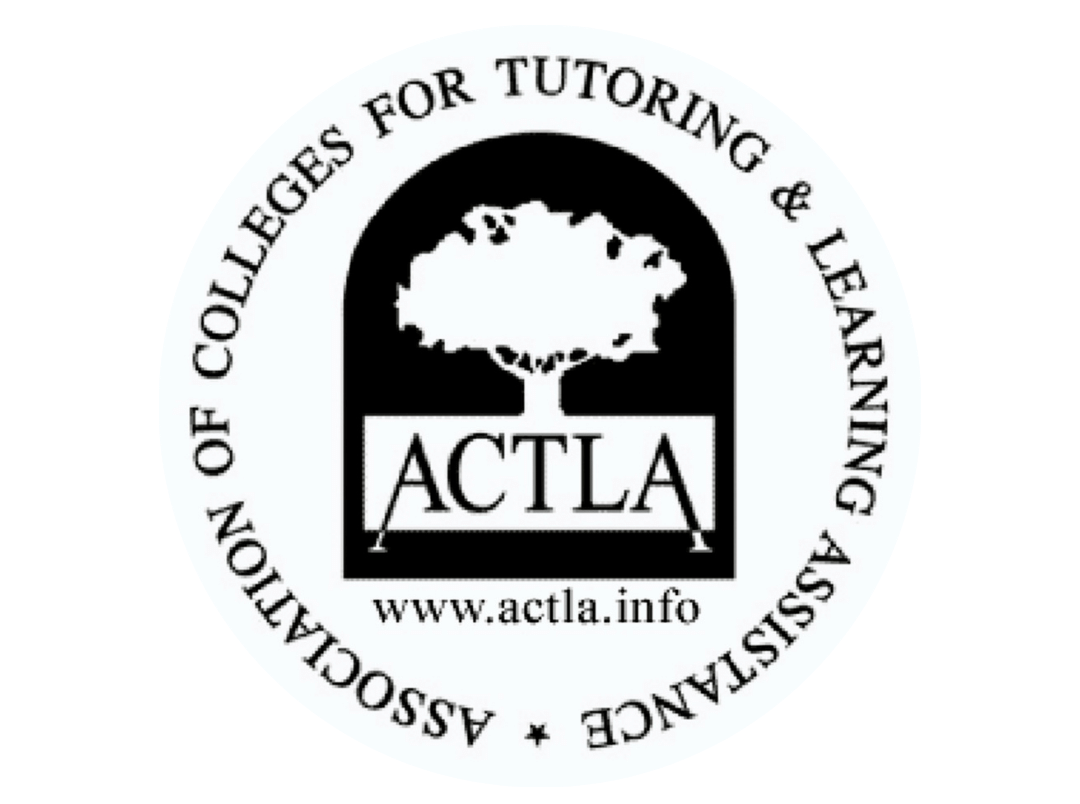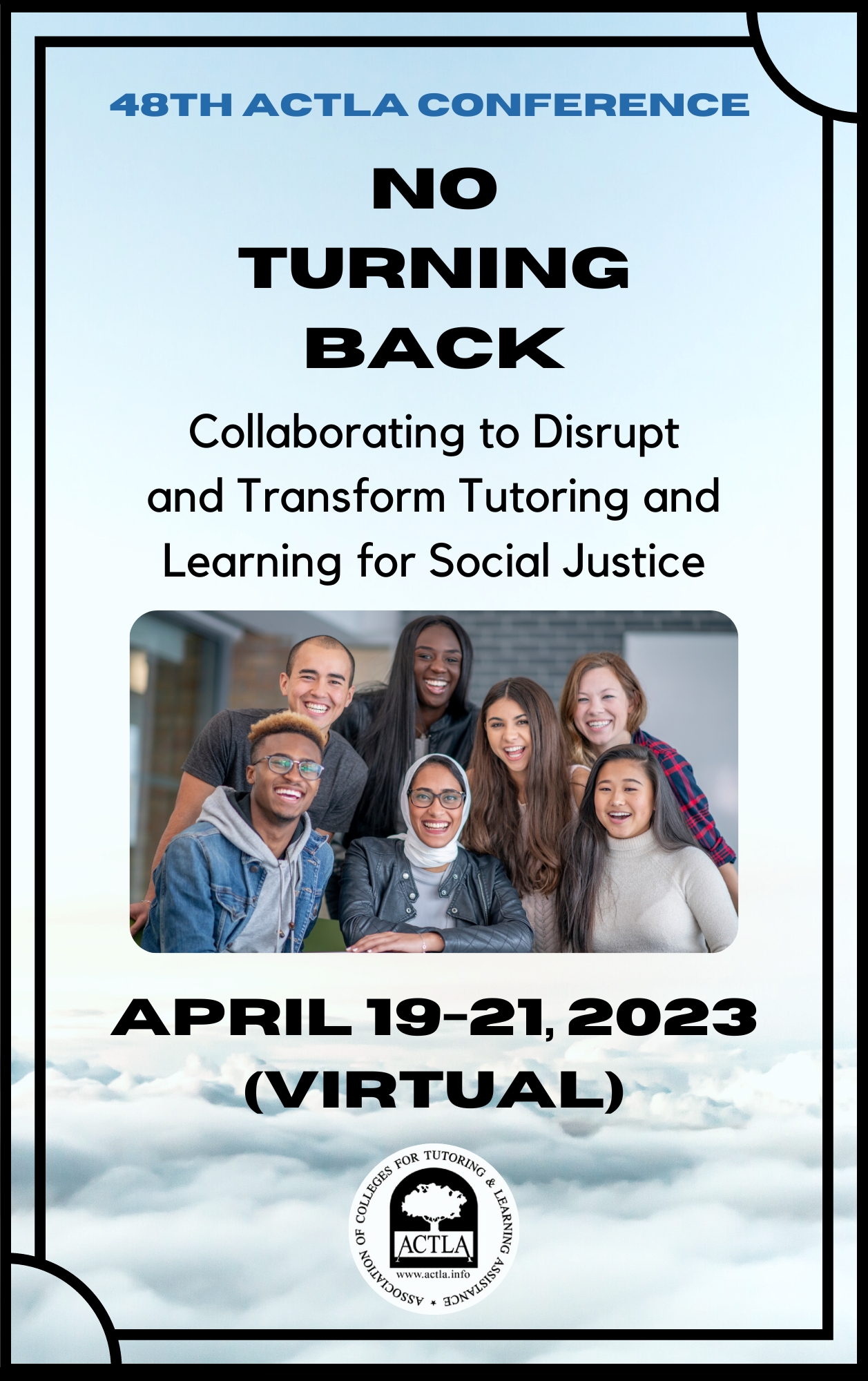
The ACT in ACTLA: Disruption is a positive act for transformation, supporting Student-Centered pedagogies like ungrading, embodied learning, social emotional and cultural wealth, and communities of learning.
At ACTLA, we have long imagined:
- transforming the legacy of remediation and deficit-minded pedagogies in Tutoring and Learning Assistance to pedagogies grounded in the community and cultural wealth of the growing diversity of our students
- creating empowering spaces that are trauma informed, and embodying practices of social justice and empowerment
- learning collaboratively and with each other as we inspire and sustain students, mentor tutors, and create learning communities, engaging social emotional learning and embodied learning.
We are not alone in embodying these practices as we transform our centers, the physical and virtual spaces where students come to learn with all of themselves and transform tutor training in response to the neuroscience of learning, social emotional learning, and cultural responsiveness.
ACTLA is the space to grow and learn together, a space of transformation and collaboration that heals and empowers us to reimagine and recreate the role that tutoring and learning centers can play in transforming the lives of students.
Continue scrolling to view all necessary links for the conference!
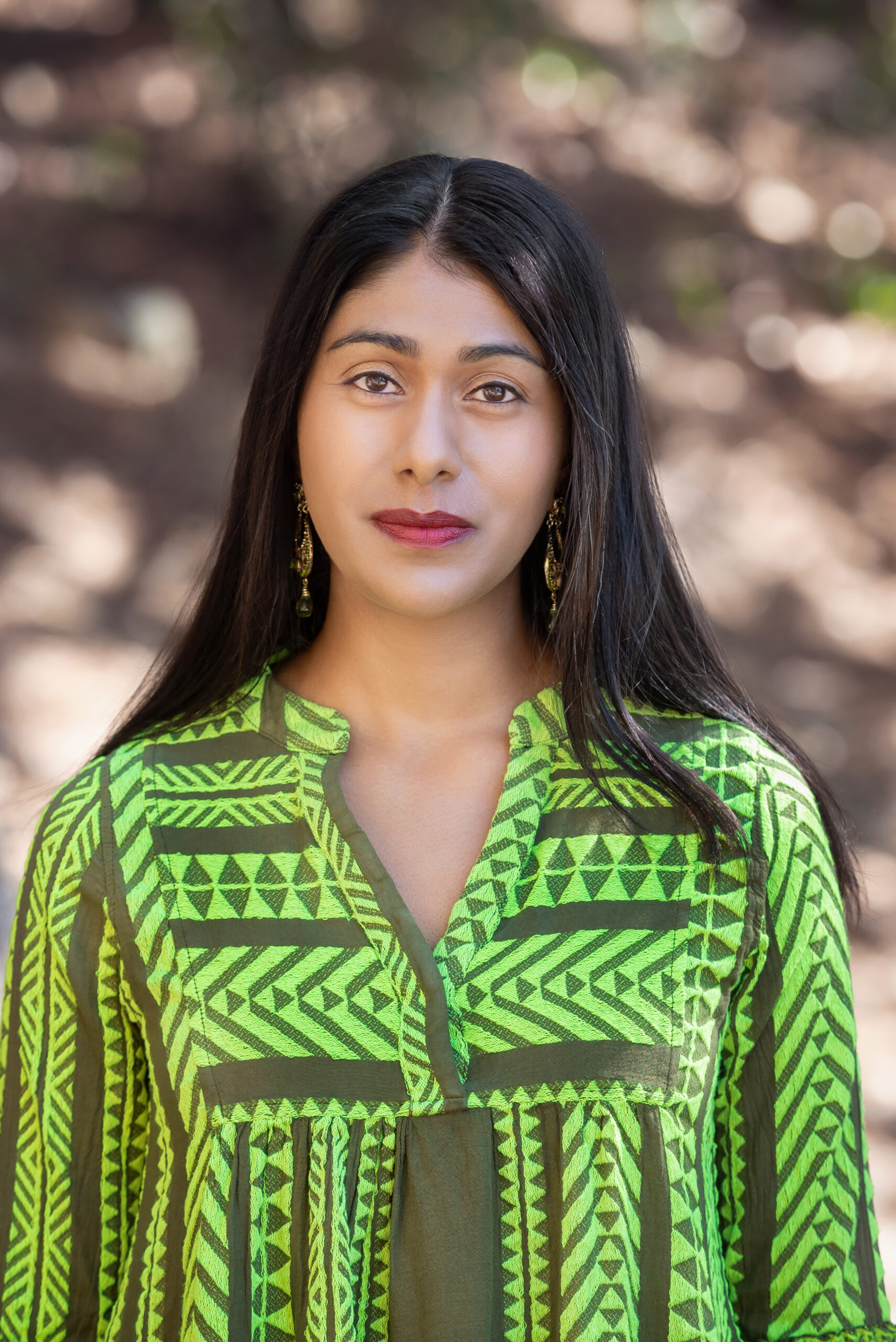
Our Keynote Speaker
Meena Srinivasan is a highly respected educational leader who brings deep expertise and credibility in the field of Social and Emotional Learning (SEL) and is also one of Mindful Magazine’s 2022 Ten Powerful Women of the Mindfulness Movement. Meena’s worked with several schools and districts to support them in implementing SEL systemically and spent five and a half years working in partnership with the Collaborative for Academic Social and Emotional Learning (CASEL) to implement SEL system-wide in the Oakland Unified School District. Meena is a National Board Certified Teacher, has taught and led in a variety of school settings (public, private, urban, international) and holds a Clear Administrative Services Credential in the state of California. She is the creator of the SEL Every Day online courses, author of Teach, Breathe, Learn: Mindfulness In and Out of the Classroom and SEL Every Day: Integrating SEL with Instruction in Secondary Classrooms which was chosen as one of 2019’s Favorite Books for Educators by the Greater Good Science Center at UC Berkeley. She is also the author of Integrating SEL into Every Classroom Quick Reference Guide. Meena’s article, “Social and Emotional Learning Starts with Adults” was one of ASCD’s 10 Best Express Articles of 2018 and she was featured in the Dec 2020/Jan 2021 issue of Educational Leadership Magazine on “Mindful School Leadership.” She also offered a guided meditation for educators in Educational Leadership Magazine’s July 2022 issue, Nurturing Wellbeing in Schools. Meena has been practicing yoga and embodiment practices for more than 25 years and is a student of Professor Ramchandra Gandhi (Mahatma Gandhi’s grandson) and Nobel Peace Prize Nominee, Thich Nhat Hanh. She also serves on the Board of Directors of the Thich Nhat Hanh Foundation. Learn more at meenasrinivasan.com.
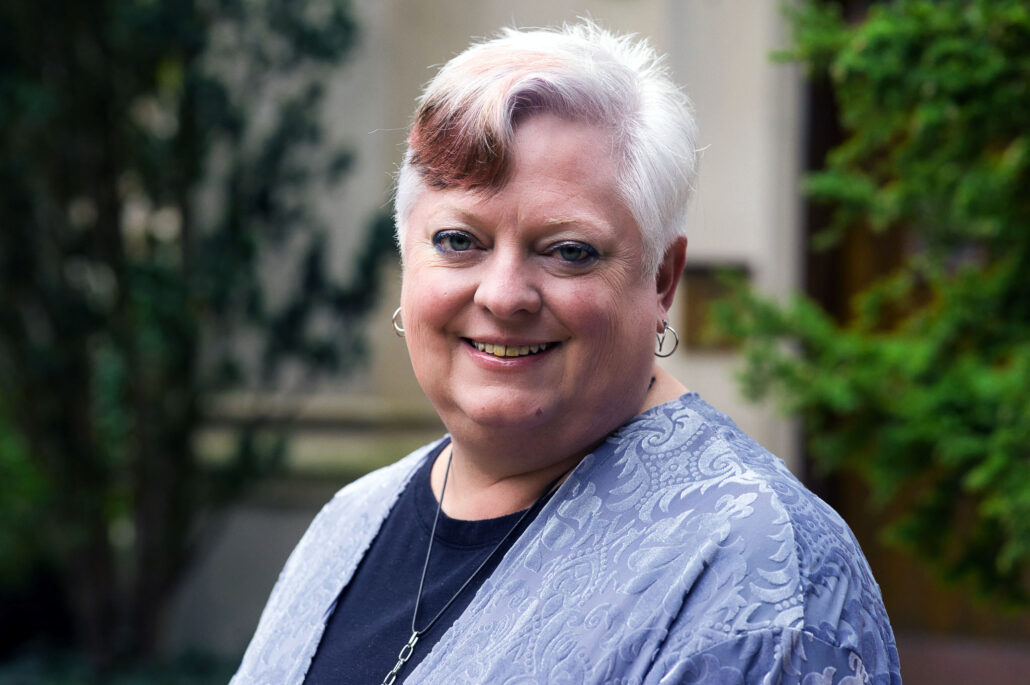
Strand 1: Educator/Peer Educator Identities & Intersectionalities
Dr. Trixie Long Smith is director of The Writing Center and Red Cedar Writing Project at Michigan State University, where she is an Associate Professor in the Department of Writing, Rhetoric, and Cultures and assistant director of the graduate program. Her teaching, research, and publications are infused with issues of gender and activism even as they revolve around writing centers, WAC/WID, and teacher training. These often intersect with her interests in pop culture, community engagement, supporting graduate writers, and the idea that we’re just humans learning with/from other humans (you know, with bodies, feelings, lives outside the academy).
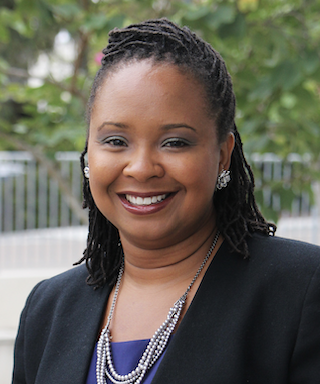
Strand 2: Disrupting and Transforming Policies, Practices, and Spaces for Equity and Social Justice
Dr. Ebonée Williams serves as the Vice Chancellor for Student Success and Equity at UC Santa Cruz. Dr. Williams' experience as an engineer, lecturer, and student affairs professional is instrumental in developing campus partnerships in support of student success. She believes co-curricular experiential learning is essential to student success & aspires to cultivate learning environments that ensure students develop a deeper understanding of themselves and a greater resolve to navigate the world around them.
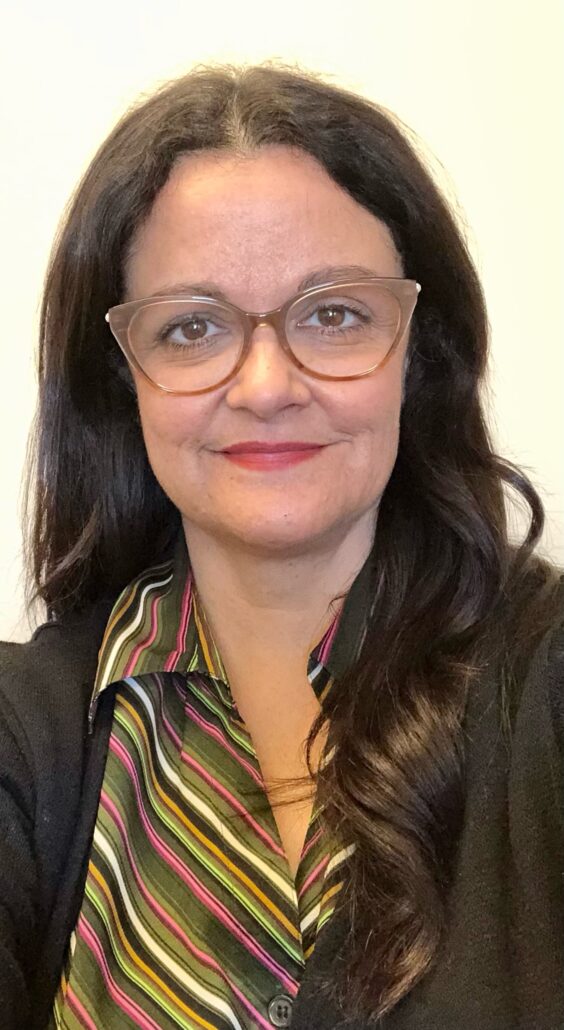
Strand 3: Training and Community Redesigned with Serving Students in Mind
Dr. Jenny Haley: The training and design of learning assistance communities must be grounded in service to students. Too often we focus on how to make students "college-ready" instead of refocusing on our efforts on how to make our colleges—and learning centers—ready for the student who arrives on our doorstep. Our students bring with them a vast array of different lived experiences, backgrounds, and preparedness. Some are proficient at seeking out resources and feeling entitled to use them, while for others, asking a tutor for help is akin to admitting defeat and is a part of the mystifying and seemingly inaccessible processes of higher education. As adapted from Robert K. Greenleaf, only through a servant leadership approach can we hope to acknowledge our students' perspectives, give them the support they need to meet their academic and personal goals, involve them in decisions where appropriate, and build a sense of community within our teams in order to serve our students as they are now and as who they wish to become. This leads to higher engagement, more trust, and stronger relationships with students and other stakeholders on campus.
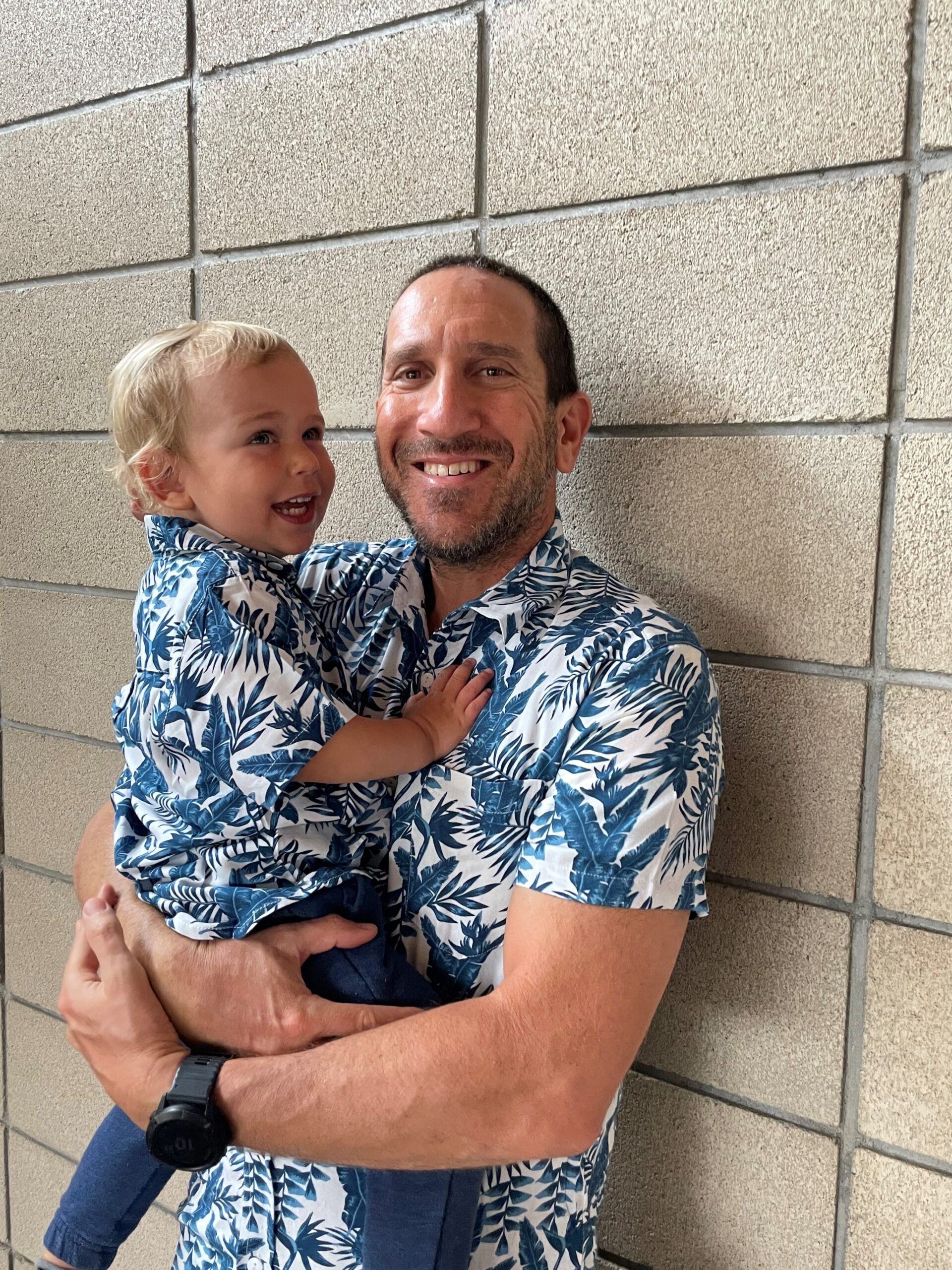
Strand 4: Innovative Practices to Disrupt and Transform Online Tutoring and Learning Assistance
Dr. Mark Manasse: As a dedicated and passionate educator and program director, I offer a track record of achievement in driving innovation and change in program management and course development. I have spent my career leading teams in enhancing student success by creating, implementing, and managing multiple programs in academic and professional settings. My goal is to develop programs that empower employee and student success through exceptional training, learning, and development initiatives. I recently helped establish Thinkist, serving as Chief Education Officer for this edtech startup training high school students to operate as tutors in math through an online platform. I develop and deliver training materials to cultivate leadership and educational expertise in our tutors while meeting with various community, business, and educational leaders across the US to expand operations into new markets. I simultaneously serve as Program Coordinator/Director at Mesa College, leading a cross-curriculum academic program for one of the largest community colleges in California while also managing a newly established Education Department. Additionally, I develop and instruct a range of courses for both undergraduate and graduate students. I have taught courses in English, ESL, and education in the San Diego Community College District where I serve as a full-time faculty member, and graduate courses in methodology, social justice, and assessment for both hybrid and in-person class settings at the University of San Diego. Earlier in my career, I taught at San Diego State University and University of California, San Diego. My leadership experience includes serving as a CalADE and ACTLA board member and co-founding the Learning Assistant Project (LAP), a statewide CA community of practice focused on professionalizing higher ed tutoring offerings. As an education advocate, I was a keynote speaker at the IESI Conference and have been invited to serve as a panelist on education and student success for numerous state/national conferences, including the National Conference on Race and Ethnicity (NCORE). I earned my Ph.D. in Leadership at the University of San Diego, a Master’s in Teaching English to Speakers of Other Languages (TESOL) at The Monterey Institute of International Studies, and a Bachelor’s in English from UC Berkeley.

Strand 5: Embodied Practices in Tutoring and Learning
Professor and Department Chair, Fabiola Torres: What does it mean to authentically care? If we apply anti racist practices, do we still have to authentically care about a student’s humanity? Is there a difference between transactional relationships and transformational experiences? If so, what does that look like?
